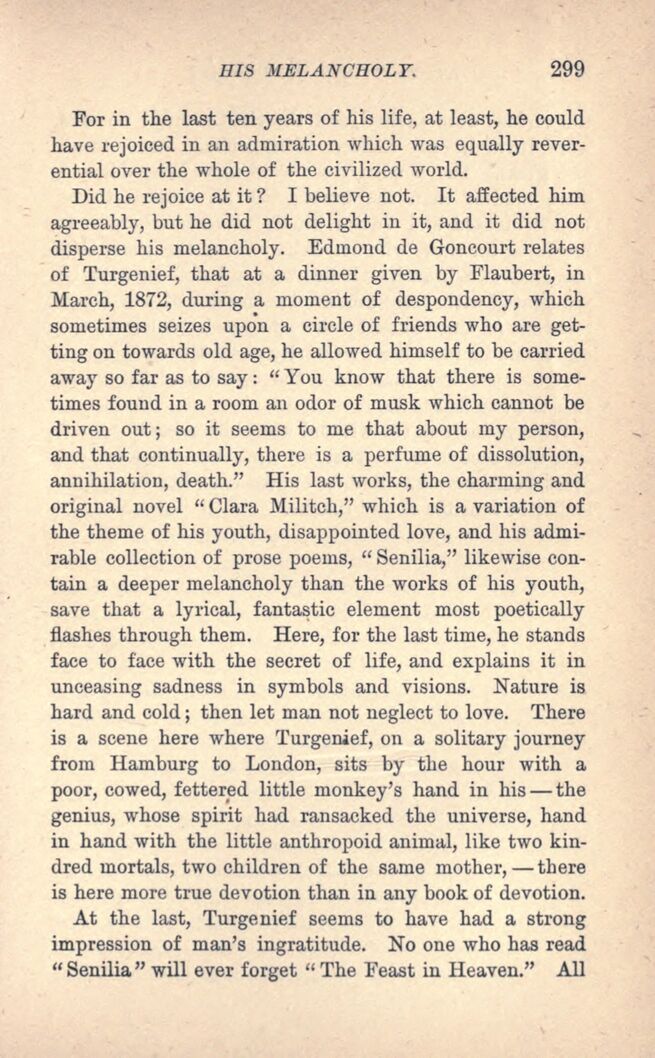
Full resolution (JPEG) - On this page / på denna sida - Impressions of Russian Literature - V

<< prev. page << föreg. sida << >> nästa sida >> next page >>
Below is the raw OCR text
from the above scanned image.
Do you see an error? Proofread the page now!
Här nedan syns maskintolkade texten från faksimilbilden ovan.
Ser du något fel? Korrekturläs sidan nu!
This page has been proofread at least once.
(diff)
(history)
Denna sida har korrekturlästs minst en gång.
(skillnad)
(historik)
For in the last ten years of his life, at least, he could
have rejoiced in an admiration which was equally
reverential over the whole of the civilized world.
Did he rejoice at it? I believe not. It affected him
agreeably, but he did not delight in it, and it did not
disperse his melancholy. Edmond de Goncourt relates
of Turgenief, that at a dinner given by Flaubert, in
March, 1872, during a moment of despondency, which
sometimes seizes upon a circle of friends who are
getting on towards old age, he allowed himself to be carried
away so far as to say: “You know that there is sometimes
found in a room an odor of musk which cannot be
driven out; so it seems to me that about my person,
and that continually, there is a perfume of dissolution,
annihilation, death.” His last works, the charming and
original novel “Clara Militch," which is a variation of
the theme of his youth, disappointed love, and his
admirable collection of prose poems, “Senilia,” likewise
contain a deeper melancholy than the works of his youth,
save that a lyrical, fantastic element most poetically
flashes through them. Here, for the last time, he stands
face to face with the secret of life, and explains it in
unceasing sadness in symbols and visions. Nature is
hard and cold; then let man not neglect to love. There
is a scene here where Turgenief, on a solitary journey
from Hamburg to London, sits by the hour with a
poor, cowed, fettered little monkey’s hand in his — the
genius, whose spirit had ransacked the universe, hand
in hand with the little anthropoid animal, like two
kindred mortals, two children of the same mother, — there
is here more true devotion than in any book of devotion.
At the last, Turgenief seems to have had a strong
impression of man’s ingratitude. No one who has read
“Senilia” will ever forget “The Feast in Heaven.” All
<< prev. page << föreg. sida << >> nästa sida >> next page >>